Shea Nilotica Butter
CTFA Name: Nilotica Shea Butter
INCI Name: Butryospermum Parkii or Vitellaria Paradoxa Butter (Shea Butter)
COUNTRY OF ORIGIN: Kenya
Packaging: BPA-free Gallons, BPA-free Buckets, BPA-free Plastic Jars
Description: Pale to creamy yellow when cool translucent liquid when heated; mild nutty smell, characteristic of virgin shea butter
Applications: Skincare, Soap Manufacturing, Food Preparation
Shea butter, what more can be said about shea? You can use it to cook with, you can use it on your skin, you can use it on your pets, you can put it in your edibles, you can use it in your hair, it makes great soap….so many uses for shea butter.
Virgin Shea Nilotica Butter is softer and creamier than Ghanian shea, turning into a silky, hydrating oil as soon as it comes in contact with the skin. East African shea nilotica butter also has a much higher level of oleic acid than Ghanaian shea, it is high in natural vitamins A, E, and K, and natural plant antioxidants called catechins. These are the same antioxidants that green tea is known for. This butter is extremely effective in delivering moisture to skin and hair, it helps brighten skin, fight the effects of stretch marks, and helps improve hair quality.
East African Shea Nilotica Butter is softer and creamier than Ghanian shea. It will melt faster and can be liquid while it is sitting on your shelves so be careful what you store it in.
All shea butter can be used on its own, without blending it with anything. The benefit of using East African Shea butter is that it is already soft and spreadable. Ghanian shea can take some warming up to get it to spread in. The benefit of Ghanian Shea is that you can use it to make whipped shea butter, whereas shea nilotica will be too soft to keep its whipped texture.
Nilotica’s high levels of vitamin E make it an excellent ingredient to increase the moisture content in your body butter, soap bars, lotions, body creams, and more. Vitamin E is a key component in healing damaged skin and boosting hydration in the skin.
East African Shea Nilotica butter is naturally higher in oleic acid than Ghanaian shea. This makes Nilotica an even better ingredient for skin hydration products. Oleic acid is considered thicker and richer than linoleic acids and is a key hydration acid of the fatty acid profile. Shea Nilotica butter is an excellent option for shampoo and conditioner bars or liquid formulas because of the higher levels of oleic acid.
If you have a line of products specifically targeting eczema, rosacea, dermatitis, and dry skin, shea Nilotica butter is recommended to help combat those skin issues. The higher levels of oleic acid make Nilotica an even better shea option for these products.
East African Shea Nilotica butter has also been tested to show brightening effects on the skin and helps to even out skin tone. Nilotica is soft and silky on the skin, similar to Cupuacu butter.
We here at Shay and Company carry four versions of shea butter for you. We have virgin shea Nilotica butter, virgin Ghanian shea butter, a refined shea butter, and an organic virgin shea butter. All four versions have tremendous health and skincare benefits.
- Virgin shea butters have a little more of a creamy color (although not the dark, yellow or brown of raw shea butter), and a beautiful nutty smell. We offer both conventional and certified organic virgin shea butters, so if you’re looking to create an organic whipped shea butter, or an organic soap bar, the organic virgin shea is the way to go! I love the smell of our virgin shea butters. Slightly nutty, little earthy, and lovely when mixed with our organic natural cocoa butter, organic mango butter and a little essential oil blend. Both virgin shea butters have that excellent creamy feel of virgin shea butter.
- Refined shea butter is a shea that has been refined/bleached/deodorized so that it always has a consistent white color and barely any smell. This one is generally the preferred shea butter for handcrafted soaps when you want to avoid any odor in your ingredients. You will select the Refined Shea Butter when you want to create a superior moisture product but you want to showcase your fragrances or essential oil blends over the natural smell of your raw ingredients.
One of the coolest things I have learned about shea butter over the years is that shea butter in Africa is considered a food item. Food items in Africa are controlled by women only, not men, so all profits made from the harvesting and sale of shea butter goes to the women.
Shea butter is very thick, even when it is heated it is a heavier-weight butter. Shea butter products retain their texture and skin hydration very well as it is said that shea is about 60% fat. This makes shea butter an excellent ingredient for creating soap bars and for creating body moisturizers.
Shea butter does offer a natural UV protection level of about 6. It is not an FDA-regulated sunscreen, but it can be incorporated into skincare and face care products that are designed to help naturally protect against sun damage.
Shea butter is rich in oleic, stearic, palmitic, and linolenic acids. This means that it is exceptional at hydrating damaged skin and helping skin to boost its natural collagen production. It also means that it helps to fight that natural imbalance of fatty acids in acne-prone skin.
Consider using shea butter in your lotion bar, body lotion, body butter, foot cream, acne face moisturizer, hair balm, hair relaxant, scalp treatment, cuticle butter, lip balm, diaper balm, sun protection cream and so much more.
Please note, when using shea butter if you heat it too hot during the melting phase, when it solidifies it can have a slightly granular texture. This is completely normal, although some people may not like the feeling much.
If you have grainy shea butter, you can get rid of those little beads. This happens when shea butter heats up and then cools slowly. If you have a grainy shea, simply heat it back up on the stove (not in a microwave) to about 175°F. Leave it at this temperature for about 20 minutes, then pour it into your containers or your formulas and cool quickly. This may mean putting the finished product into a cooling system like a refrigerator. If it is a warm day, you will want to accelerate the cooling to avoid the grains.
East African Shea Nilotica Butter is sold in wholesale and bulk 1-pound BPA-free jars, 5-pound BPA-free buckets, 25-pound BPA-free buckets, and 37.5-pound BPA-free buckets. Please email us directly for orders over 225 pounds.
Short Term Storage: Air tight container. Dark location. Cool room temperature.
Long Term Storage: Removing air from the storage container will delay oxidation and rancidity (may need to place it in a smaller container). Refrigeration can extend shelf life.
Best Used By: See lot specific C of A for expiration date.
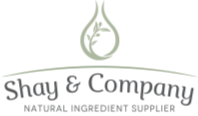

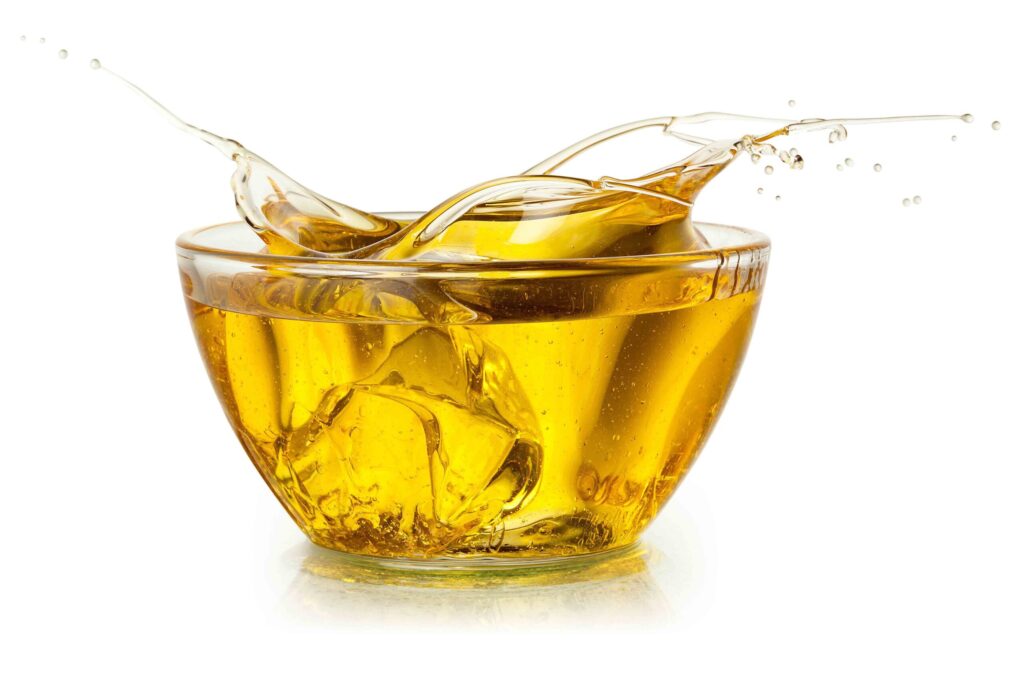
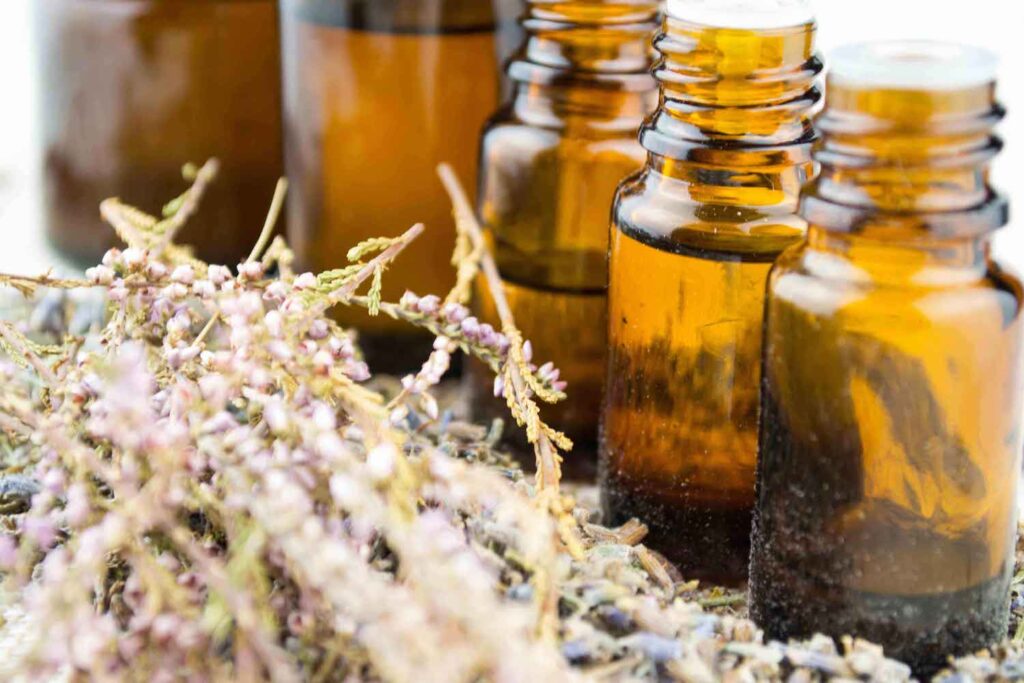


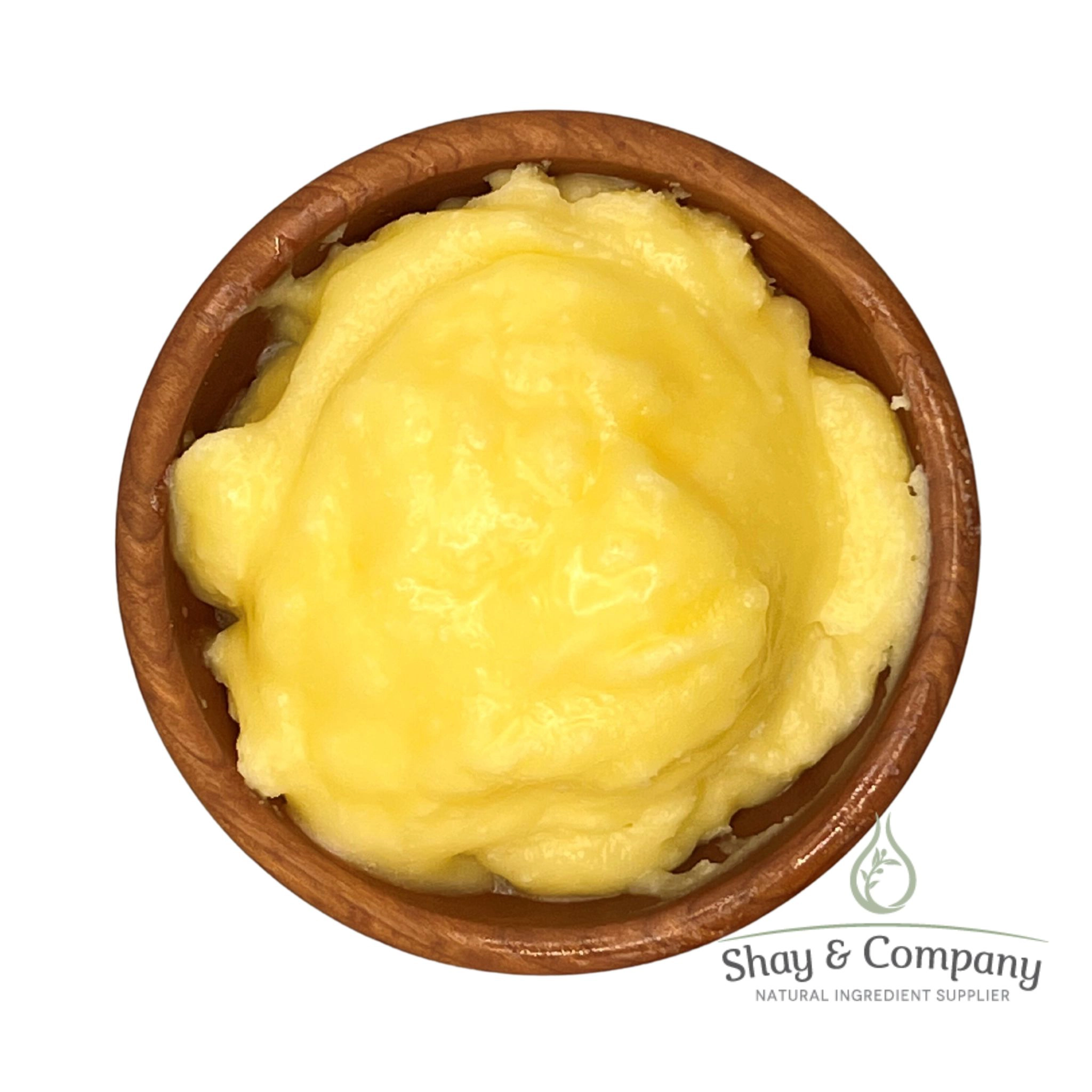
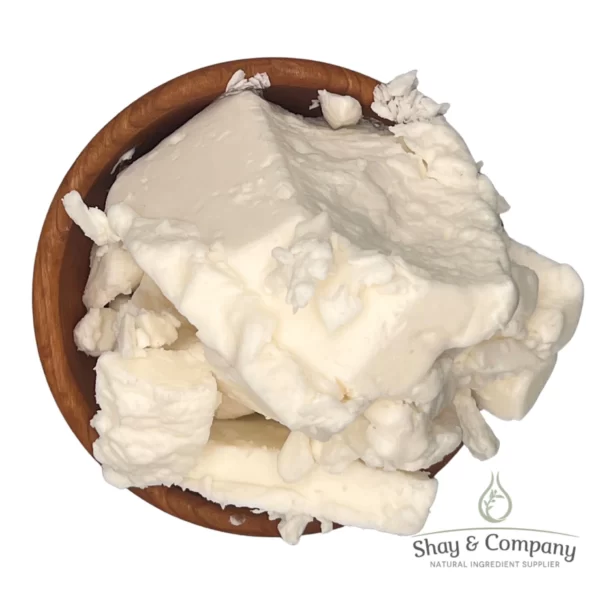
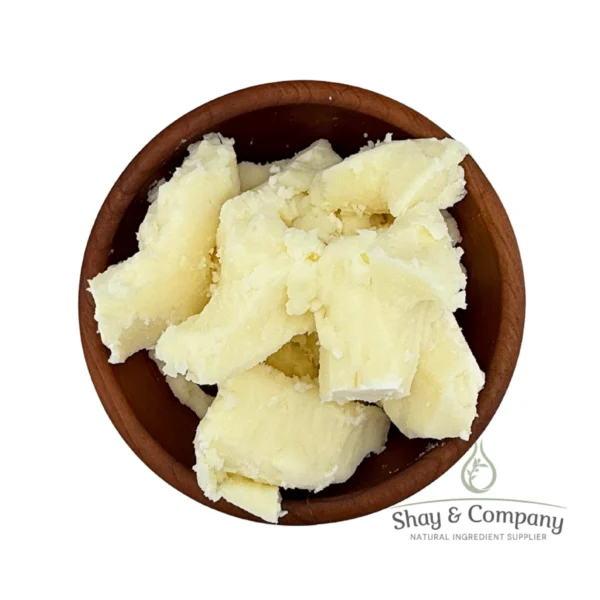
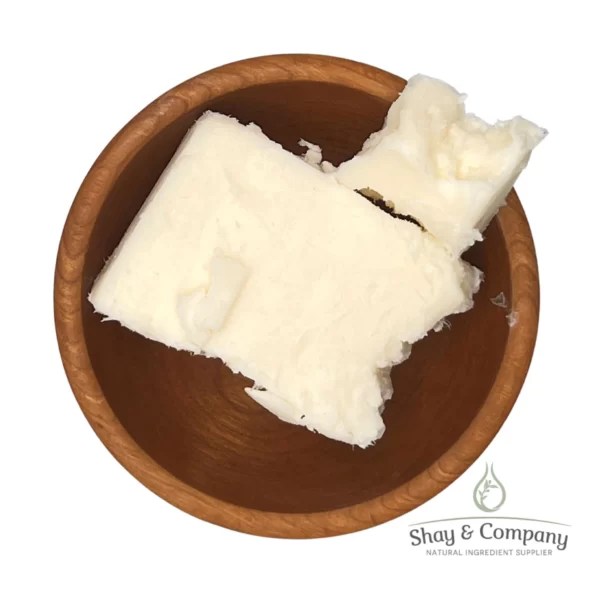
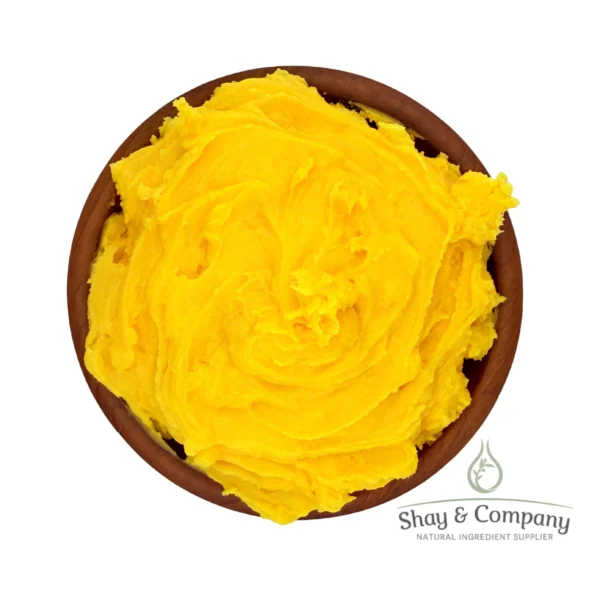
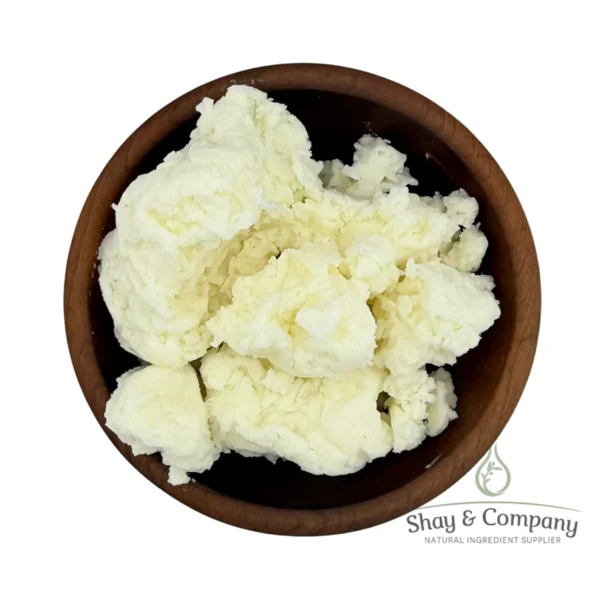
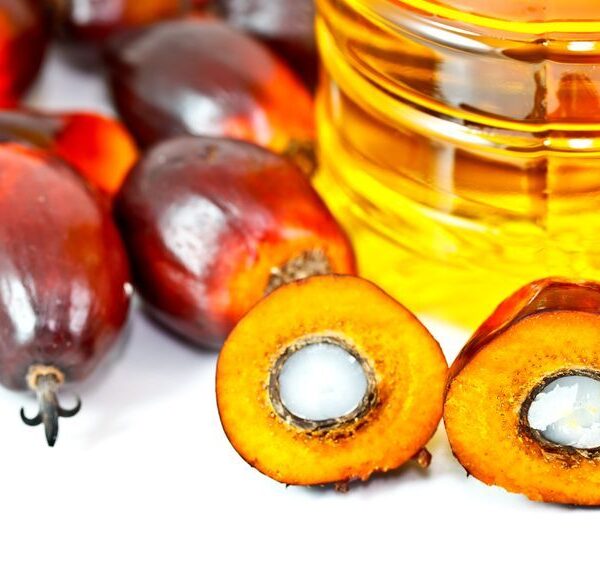
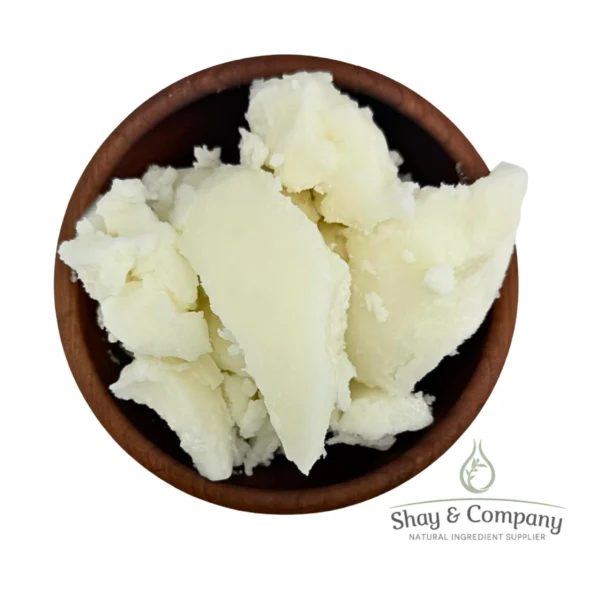
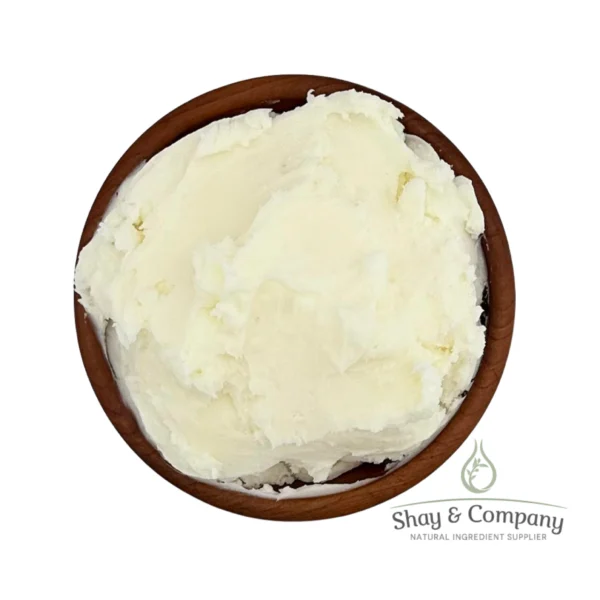
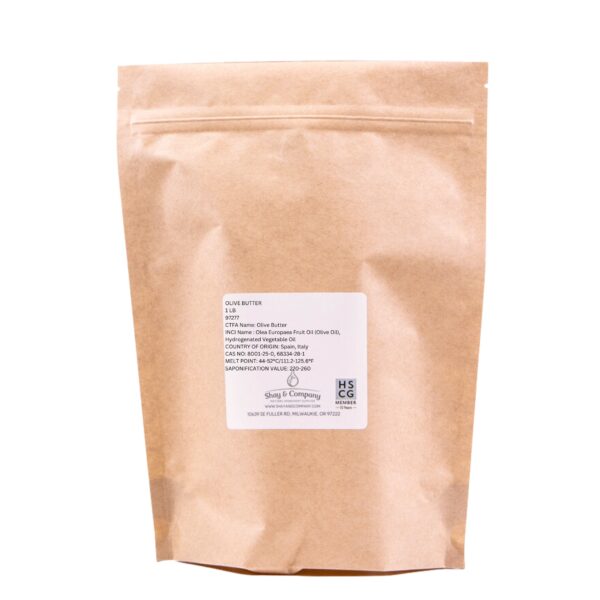
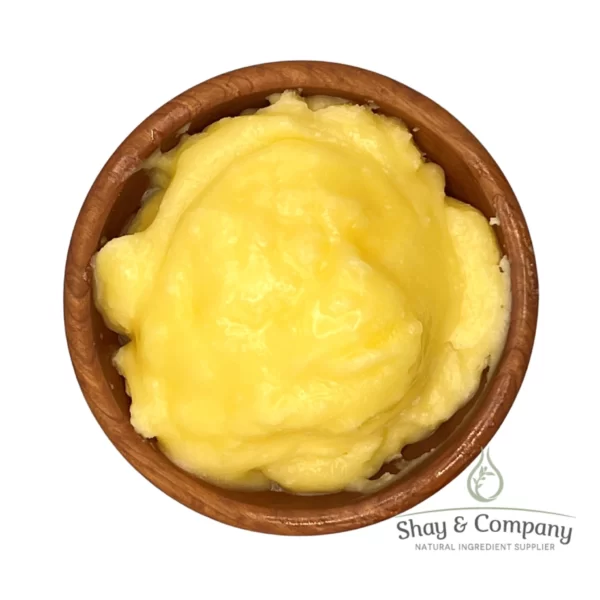
Reviews
There are no reviews yet.